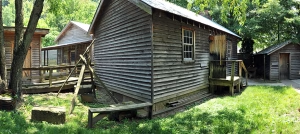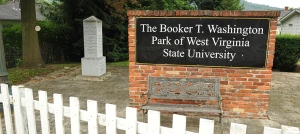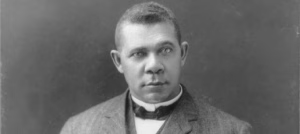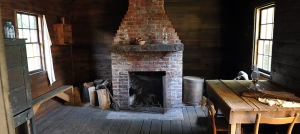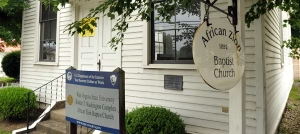Booker T. Washington’s Boyhood Home
An educated African-American leader, whose influence stretched from three US presidents to across the United States, made his boyhood home in Malden, West Virginia.
Booker T. Washington’s Influence on West Virginia State University
The second Morrill Act of 1890 dictated that the governor and legislative body of West Virginia establish such a school in their state. A site was chosen in Institute, which was then known as Piney Grove. From there Booker T. Washington’s influence on the fledgling school began.
WVSU Freedom Station on the National Underground Railroad
West Virginia State University (then College) officially became a host institution for a Freedom Station on the National Underground Railroad program in September 2003. As a Freedom Station, WVSU’s mission is to educate the public about the global context of slavery and the historic struggle in West Virginia to abolish human enslavement, secure freedom and equal rights for people of all cultures, and promote dialogue in the ongoing struggle.
About the Booker T. Washington Institute
In 2000, West Virginia State College, the Booker T. Washington Association, the Midland Trail, and Cabin Creek Quilts Cooperative signed an agreement to work together to promote Booker T. Washington’s […]
Booker T. Washington Park
Booker T. Washington, after leaving the area, purchased a 2-story brick house for his sister, Amanda Johnson. It is located straight across from today’s Cabin Creek Quilts. Today, a beautiful […]
Booker T. Washington’s Influence on WVSU
After the Civil War, schools to educate African-Americans began to be established. The second Morrill Act of 1890 dictated that the governor and legislative body of West Virginia establish such […]
Boyhood Home
An educated African-American leader, whose influence stretched from three United States presidents to across the nation, made his boyhood home in Malden, West Virginia. After the Civil War, Booker T. […]
BTWI Historical Sites
African Zion Baptist Church The African Zion Baptist Church was first organized in the 1850’s as the first black Baptist Church in western Virginia. The first church was later built […]
Underground Railroad
West Virginia State University officially became a host institution for a Freedom Station on the National Underground Railroad program in September 2003. As a Freedom Station, WVSU’s mission is to […]
